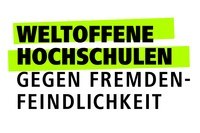Zum Profil
Projekt-/Forschungspraktikum WS 2025/26
Organisation
Studiengänge: Bachelor oder Master of Science: Information Management / Digital Business Management, Wirtschaftsinformatik, Informatik, Computervisualistik, Master of Science: E-Government, Web and Data Science (deutsche Sprachkompetenz erforderlich)
Zeitplan: Das Kick-off Meeting des Projekt-/Forschungspraktikums wird organisiert, sobald sich mindestens 6 Personen in Klips registriert haben. Reguläre offizielle Treffen werden alle 2-3 Wochen organisiert
Registrierung in Klips: aktuell geöffnet
Informationsveranstaltung: wird organisiert, sobald sich mindestens 6 Personen in Klips angemeldet haben
Inhalt
Folgende optionale Themen werden angeboten:
1. Optimierung und Digitalisierung von Antragsprozessen im Agrarbereich
siehe dazu die über die Mailverteiler kommunizierte Information. Deutsche Sprachkenntnisse erforderlich.
2. NoLa 5G Campusnetz
3. Analyse von Mikroklimata im Weinbau / Analysis of Microclimatic data in the steep vineyards - this topic will not be offered in Winter Term, but will start in Jan/Feb 2026
The Moselle valley, with its unique cultural landscape and almost 2000 years of wine growing tradition, is characterized by cultivated steep vineyards. In order to counteract the steady decline in vineyards in the cultivation area and to preserve the unique cultural landscape, the Smart Vineyard project has deployed IoT sensory networks to monitor the weather situation in the microenvironments in three steep vineyards. We measured data like leaf wetness and temperature as well as wind speed, precipitatin and air humidity. The sensory data shall enable farmers to make more informed decisions to mitigate weather-related risks of potentially evolving diseases on their wine grapes and to reduce the spraying volumes where not necessary.
Wineries use services like Vitimeteo, weather stations of the DLR and DWD to monitor the weather situation in general. The research and project lab shall analyse the existing data from the three vineyards in Smarter Weinberg and compare these data with the openly accessible data of DLR and DWD, and if possible also use Vitimeteo data (if no costs affiliated).
Research objectives and tasks:
The research lab aims to validate sensory and forecast weather data to ensure accuracy, reliability, and quality of data, and to understand differences in the overall climate in the region (based on data by DWD and DLR) vs. microclimate (data from the three IoT sensory networks of Smarter Weinberg) in certain positions in the trial vineyards. Validating sensory weather data involves comparing it with data from reference sources, such as established weather stations or (non-)commercial weather services. Analyzing the local sensory data and correlating these with the overall weather-related data could also help us to understand the quality and reliability of forecasts better. Another aim is to create own forecast data and compare forecast accuracy with reference forecasts and the actual ground truth. The following tasks are to be conducted as part of the research / project lab:
- Investigate data analysis processes and set up a scientifically reliable data processing pipeline: Analyse scientific literature on data processing pipelines and the relevant steps for data processing
- Investigate and study forecast methods and studies on microclimate literature: Conduct research on different approaches for weather prediction, including machine learning approaches, statistical methods and other feasible approaches for forecasting, and familiarize yourself with weather data interpretation and microclimate in vineyards
- Execute the relevant processes of data processing along the data processing pipeline: I.e. analyse, process, interpret and visualize the data for the microclimate analysis
- Data extraction and preprocessing: Extract the data from the different data sources (from the Smarter Weinberg data platform as well as external data sources) and preprocess it in a way that the formats are similar and errors or missing data is dealt with
- Data Analysis: Analyze and correlate Smarter Weinberg sensory data with openly available weather data such as Vitimeteo and validate the accuracy of our collected data where these deviate
- Forecast implementation: Implement own forecast methods based on the findings of scientific research and validate its accuracy with the available data from Smarter Weinberg
- Project management, presentation of results, documentation and reporting: During the research / project lab, the team is responsible for conducting effective and efficient agile project management and project planning, including organization of regular official meetings with the supervisors to present intermediate results and communicate progress. Along with the research lab, the results and methodical approaches of the work need also to be documented in the project handbook (report). At the end of the research / project lab, the overall project and its results need to be presented in a final presentation
Requirements for participation:
- Technical Background Knowledge: Knowledge of time series analysis, statistical analysis and ML approaches; Understanding of basic data formats like JSON, CSV, XML, ...
- Basic Programming Skills: Knowledge of Python or R coding; Optional Flutter experience (for front-end visualization)
- Data Analysis Skills: To efficiently work with the existing data, basic knowledge about data cleaning, machine learning, statistical analysis, data visualization and data transformation skills in python, R, SQL, dashboard software will be important
- Project management and soft skills for presentation, documentation and teamwork
Your benefit
- As part of the research / project lab, students participate in a real-world data analysis project of a research project
- You gain a deeper insight into the practice of weather data analysis and the methods and tools for AI-/ML-based data analysis





